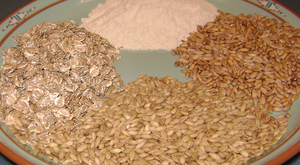When you notice your dog itching, combined with hair loss or red, scaly scabs, then the culprit may be allergies. Here are some tips to help you determine the cause, and the potential treatment, for your dog’s allergies.
Possible Causes of Dog Allergies
Dog allergies can either be year-round or seasonal. Common causes of year-round allergies include:
-
Food – Sometimes dogs can be sensitive to something in their food, usually a protein or one of the fillers in commercial dog food, and the reaction is going to be constant itching.
- Mold – Mold, either in the food or in your home, can cause some dogs to have itching problems because of the mycotoxins they release.
- Your other pets – Dogs can actually be allergic to cats, especially male or long-haired cats, which put out more cat allergens than others.
- Topical products – Your dog’s shampoo or the perfume you spray on him to make him smell fresh could be causing his allergy problems.
If you notice that your pet is only itching during certain seasons, then you will want to look for sources of allergens that are seasonal. These might include:
- Your grass – Dogs can often be allergic to grass or other outdoor plants.
- Insects – Insects, such as fleas and mosquitoes, are a common source of seasonal itching in dogs. Keep in mind that a flea infestation can enter your home and cause year-round itching.
How to Help
You may feel tempted to reach for medications to deal with your dog’s allergies, but there is actually a better way. Studies have found that antihistamines only work in about 20 percent of dogs, so you might as well avoid them. The more unnatural chemicals you put into his system, the more problems he may face. Instead, try to treat the allergies in a natural way.
The first step, whenever possible, is to remove the allergen. If your pet is allergic to something like food or mold, you can change the food or get rid of the mold. If the allergen is another pet, try washing that pet regularly. You may not be able to replant your yard, but you can stop using the topical sprays he is reacting to.
If you have eliminated the allergen and have not seen improvement, or if you cannot eliminate the allergen, then consider a natural dog allergy treatment. Several blends of herbs have been shown to help stop the itching and the allergic reaction in dogs. By focusing on a natural treatment, you will not contribute further to the problem, while providing your pet with relief.








